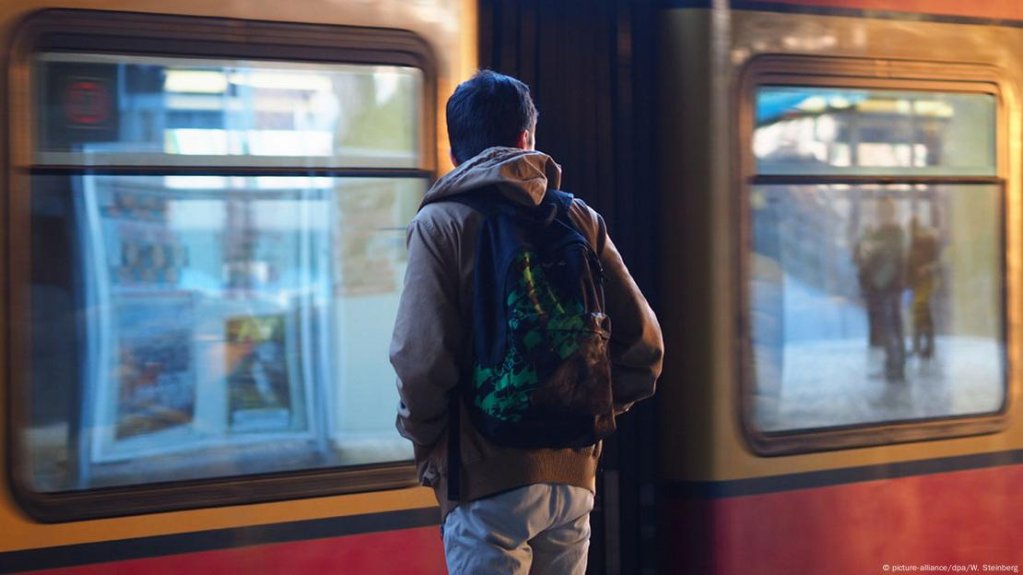Switzerland has announced major changes to the movements of asylum seekers and recognized refugees in the country. Under new laws, people seeking asylum as well as those already granted protection will only be allowed to travel to their home country or to other countries in highly exceptional cases. Ukrainians, however, are largely exempt from the amendments.
The Swiss government is preparing an amendment to its asylum regulations following a parliamentary decision, which will limit the movement of people involved in any stage of the asylum process.
Under the proposed changes, special travel permission will only be granted to asylum seekers and those recognized as in need of protection for important "personal reasons" such as emergencies in their home countries or in the case of deaths of close relatives.
The Swiss government noted, however, that further clarification is still needed before the new rules take effect, including defining what will constitute a "personal reason" in this context. Cantons, associations and politicial parties have until February 5 next year to submit comments and proposed changes to the regulations.
The new regulations are expected to come into force early next year, after having remained in limbo since 2021, when laws were passed to allow these regulations to take effect.
In addition to recognized refugees and asylum seekers still under review, the new law will also apply to people who have been temporarily admitted to the country for any other reason.

Read AlsoSwitzerland: 24-hour asylum procedure is judged 'successful'
No travel abroad at all
Similar travel bans to the home country of asylum seekers already apply elsewhere in Europe, for example in Germany.
The Swiss ban, however, will also extend to travel to any other countries, including those that are part of the Schengen free movement area -- with only a few exceptions.
The draft bill cited examples for exceptions such as "successful athletes who participate in various competitions in different countries abroad, or (…) minor children who wish to visit a parent abroad on a regular basis," adding that in most instances such exceptions would be limited to a maximum period of 30 days at a time.
In a different paragraph, the Swiss bill also added that one of the factors that will be taken into consideration when allowing for such exceptions will be the extent to which an individual asylum seeker or refugee has managed to successfully integrate into Swiss society.
One of the main reasons cited for the broader travel is to thwart any attempt by asylum seekers and refugees to try to return to their home country by traveling through other nations.
Read AlsoSchengen zone expands, but border checks persist across EU
Special provisions for Ukrainian war refugees
The draft law will allow for a special permission for Ukrainian war refugees, who have been temporarily admitted to Switzerland as a result of the 2022 Russian invasion of the country.
In future, Ukrainians will be allowed to stay in their home country for 15 days per six-month period. To date, Ukrainians in Switzerland were allowed to go back to their country for up to 15 days per three-month period.
In the European Union, which Switzerland is not a part of, Ukrainians are allowed to return to their country as often as they need, without any restrictions.

Read AlsoFingerprints, facial recognition and databases: EU prepares to launch its EES border control system
Law criticised as being 'disproportionate'
The UN refugee agency UNHCR responded to the new law by saying it viewed the planned restrictions as "disproportionate."
UNHCR stated that the travel ban did not take into account the reality of families who had been separated due to flight and persecution and might only be able to reunite in third states.
Gerhard Pfister, a Swiss MP who has been involved in the motion to change the law since its inception in 2021, said however that he hoped the new law would primarily serve the practical purpose of changing the status of people who technically are not allowed to remain in Switzerland after failing their asylum requests but could not be deported to their home countries.
"It is simply shocking when these people go on holiday in their home country," he explained, highlighting that those caught going back to their countries would be put on deportation lists.
The online news portal Brussels Signal, reported that the demand for tighter regulations for asylum seekers first arose in 2015 after there were reports of Eritrean refugees routinely traveling to their home country, a country from which they had been granted protection.
Read AlsoSwitzerland to reduce asylum reception facilities by 20 percent
with dpa
